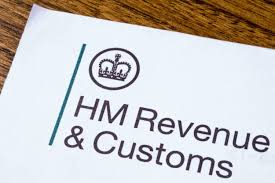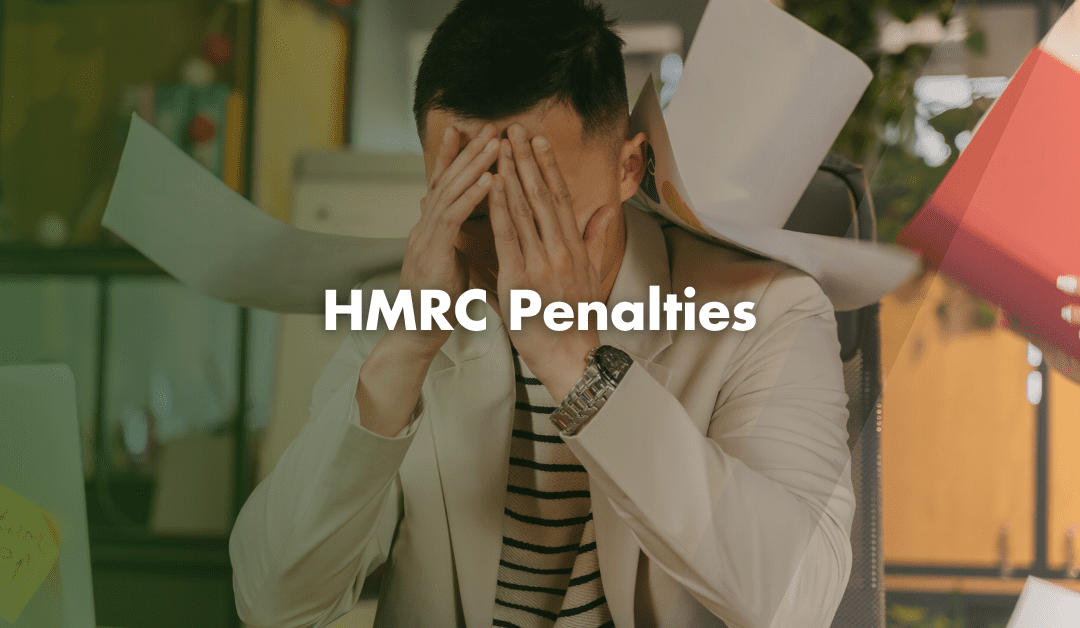The Fear of the Brown Envelope
For millions of self-employed people across the UK, there are few things more dreaded than the sight of a brown envelope from HMRC landing on the doormat, especially after a tax deadline has passed. The penalty system for Self Assessment can seem complex and unforgiving, and with millions of taxpayers warned about potential fines each year, it’s a common and significant source of stress.
The good news is that the system is not entirely inflexible. While penalties for missing deadlines are often issued automatically, HMRC has a formal process for appeals based on having a ‘reasonable excuse’. This guide will demystify the penalty system, explaining the different fines for late filing and late payment, how to avoid them, and, most importantly, how to build a successful appeal if things go wrong.

The Two Main Triggers: Late Filing vs. Late Payment
A fundamental point many people miss is that HMRC operates two separate penalty systems for Self Assessment: one for filing your tax return late and another for paying your tax bill late. You can be penalised for one without the other. For example, filing your return on time but failing to pay the tax due will still result in a late payment penalty.
Late Filing Penalties for Self Assessment
If you fail to submit your online Self Assessment tax return by the midnight deadline on 31 January, you will incur an immediate penalty. This penalty structure is designed to escalate significantly over time to deter prolonged delays.
| How Late is Your Return? | Penalty Applied |
| 1 day late | £100 initial penalty (issued even if no tax is due) |
| 3 months late | £10 daily penalty for up to 90 days (maximum £900), on top of the initial £100 |
| 6 months late | A further penalty of 5% of the tax due or £300 (whichever is greater) |
| 12 months late | Another penalty of 5% of the tax due or £300 (whichever is greater) |
Source:(https://www.gov.uk/self-assessment-tax-returns/penalties)
As the table shows, the costs can quickly mount into thousands of pounds, making it critical to file as soon as possible, even if you cannot pay the bill immediately.
Late Payment Penalties for Self Assessment
Separate from the filing penalties, HMRC also charges penalties if you do not pay the tax you owe by the 31 January deadline. These are percentage-based and are applied to the amount of tax that remains unpaid.
- 30 days late: 5% of the tax you owe.
- 6 months late: An additional 5% of the tax you still owe.
- 12 months late: A further 5% of the tax you still owe.
Crucially, HMRC also charges interest on any unpaid tax from the day after it was due until the day it is paid in full. This interest is charged in addition to any late payment penalties, meaning the total cost of being late can be substantial.
What is a “Reasonable Excuse”? Your Key to a Successful Appeal
If you have missed a deadline due to circumstances beyond your control, you may be able to appeal the penalty by providing HMRC with a ‘reasonable excuse’. While there is no strict legal definition, HMRC generally considers it to be an unexpected or unusual event that prevented you from meeting your obligation, despite you having taken reasonable care.
Examples of Excuses HMRC May Accept
HMRC’s own guidance provides examples of situations that may be considered a reasonable excuse:
- Serious Illness: An unexpected, serious, or life-threatening illness affecting you or a close family member (such as a partner or parent) around the deadline.
- Bereavement: The death of a close family member or partner shortly before the tax deadline.
- Technical Failures: Issues with HMRC’s online services, or your own computer or software failing as you were preparing to submit your return.
- Unforeseen Events: A fire, flood, or theft that destroyed your business records or prevented you from completing your return.
- Disability: Delays related to a disability that made it difficult for you to comply.
Excuses HMRC Will NOT Accept
It is equally important to understand what does not count as a reasonable excuse. Common rejected reasons include:
- You forgot the deadline or were too busy.
- You did not receive a reminder letter from HMRC.
- You found the online filing system too difficult to use.
- You couldn’t afford to pay the tax bill on time (though you may be able to set up a (https://www.gov.uk/difficulties-paying-hmrc)).
- Your accountant or agent failed to file on time (HMRC considers this your responsibility, unless your agent had their own reasonable excuse).
A critical aspect of a reasonable excuse is that you must remedy the failure as soon as the excuse has passed. For example, if you were in hospital for a week, you would be expected to file your tax return very soon after being discharged. Any unreasonable delay after the event can invalidate the excuse for penalties that accumulate later.
The Step-by-Step Process for Appealing an HMRC Penalty

If you believe you have a reasonable excuse, you should appeal the penalty as soon as possible.
Step 1: File Your Return and Pay the Tax
You cannot appeal a late filing HRMC penalties until the outstanding tax return has been submitted. It is also advisable to pay the tax you owe as quickly as possible to stop interest from accruing.
Step 2: Act Within the 30-Day Deadline
You normally have 30 days from the date on the HMRC penalties notice to submit your appeal. If you miss this deadline, you can still submit a late appeal, but you will need to provide a good reason for the additional delay.
Step 3: Choose Your Appeal Method
There are two primary ways to appeal a Self Assessment penalty:
- Online: The quickest method is through your Government Gateway or HMRC online account. You will be guided through the process of providing the details of your appeal.
- By Post: You can download and complete form SA370 ‘Appeal against penalties for late filing and late payment’ and post it to the address provided on the form.
Step 4: Gather Your Evidence
A strong appeal is supported by evidence. Depending on your reason, this could include:
- A letter from a doctor confirming a period of illness.
- A death certificate for a bereavement.
- Screenshots of error messages from HMRC’s website.
- Proof of postage if you filed by paper and it was delayed.
What Happens Next? (The Review and Tribunal Process)
HMRC will consider your appeal and inform you of their decision in writing. If they accept your excuse, the penalty will be cancelled. If they reject it, you have two further options:
- Request an Internal Review: An HMRC officer who was not involved in the original decision will reconsider your case.
- Appeal to the Tax Tribunal: This is an independent body that will hear your case and make a final, legally binding decision.
HMRC Penalties for Other Taxes (VAT, Corporation Tax)
Small businesses may also face penalties for other taxes.
VAT Penalties
For VAT periods starting on or after 1 January 2023, a new points-based system applies for late returns. You receive one point for each late submission, and a £200 penalty is only charged once you reach a threshold (e.g., four points for quarterly returns). Separate penalties apply for late payment of VAT.
Corporation Tax Penalties
Limited companies that file their Company Tax Return late face an immediate £100 penalty. This rises if the return is more than three months late, and the initial penalties increase to £500 if the return is late three times in a row.
Conclusion: Proactivity is Your Best Defence
The best way to deal with HMRC penalties is to avoid them in the first place. Staying organised, keeping good records, and filing your tax return well before the 31 January deadline are the most effective strategies. However, life is unpredictable. If an unexpected event prevents you from meeting your obligations, do not despair. Understand the rules, act quickly, and present a clear, well-documented appeal based on your reasonable excuse.
FAQs: HMRC Penalties Explained – How to Avoid & Appeal Late Tax Fines
1. What triggers HMRC penalties for late tax returns or payments?
Penalties are usually triggered when you fail to file your Self Assessment tax return or pay your tax bill by the deadline. Missing deadlines—even by one day—can lead to fines, with additional penalties added the longer the delay continues.
2. How much is the initial penalty for filing a late tax return?
HMRC charges an automatic £100 fixed penalty if your Self Assessment tax return is up to 3 months late, even if you have no tax to pay.
3. Are there additional penalties if I delay longer?
Yes. After 3 months, daily penalties of £10 may apply (up to a maximum of £900). At 6 and 12 months late, further penalties of 5% of the tax due (or £300, whichever is greater) are added.
4. What are the penalties for late payment of tax?
If you don’t pay your tax bill on time, HMRC charges 5% of the unpaid tax after 30 days, 6 months, and again at 12 months.
5. Can interest be charged in addition to penalties?
Yes. HMRC charges daily interest on late tax payments from the due date until the payment is made in full.
6. How can I avoid HMRC penalties?
To avoid fines, make sure you register for Self Assessment early, keep accurate financial records, file your return on time, and pay your tax bill before the deadline. Setting reminders and using accounting software can help you stay compliant.
7. What should I do if I receive a penalty notice?
Check the notice for accuracy. If you believe it was issued in error, you can appeal. Otherwise, pay the penalty promptly to avoid further charges.
8. How do I appeal a penalty from HMRC?
You can appeal online or by post within 30 days of receiving the penalty notice. You’ll need to provide a valid reason—known as a “reasonable excuse”—such as serious illness, bereavement, or technical problems.
9. What qualifies as a “reasonable excuse” for appealing a penalty?
Acceptable excuses may include unexpected hospital stays, serious mental illness, death of a close relative, or issues with HMRC’s online systems. Lack of awareness or forgetting the deadline is generally not accepted.
10. Can penalties be reduced or cancelled?
Yes, if your appeal is successful, HMRC may reduce or cancel your penalty. In some cases, they may allow a time-to-pay arrangement instead of charging a penalty.
11. Is it possible to get help with appealing a penalty?
Yes. Tax professionals, accountants, or organisations like TaxAid or Citizens Advice can help you draft an appeal or understand your options.
12. Can HMRC take enforcement action if I don’t pay the penalty?
Yes. HMRC can recover unpaid fines through legal action, wage garnishment, or by using debt collection agencies.
